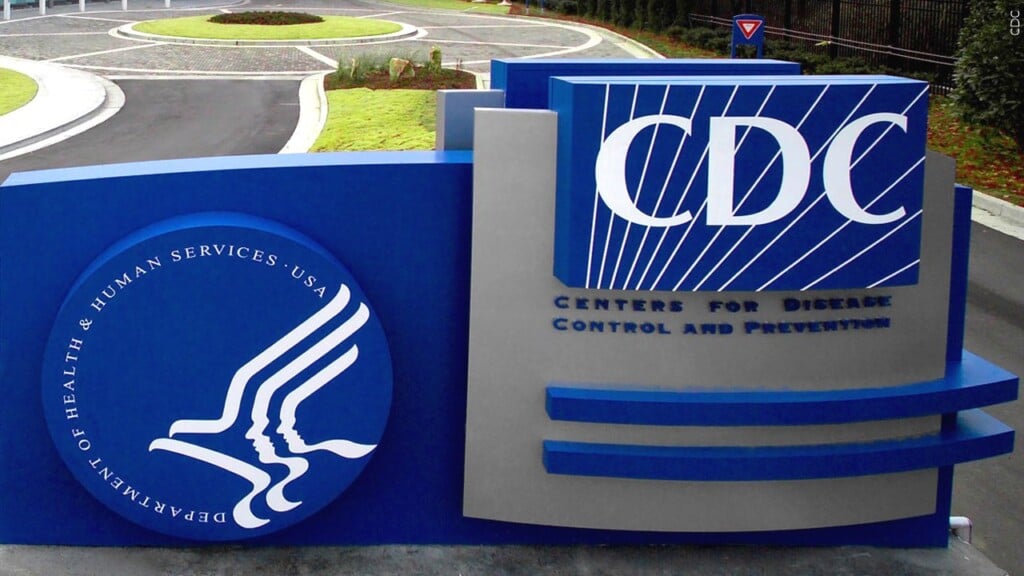CDC officially adopts vaccine panel’s recommendations on COVID, chickenpox shots

(CBS NEWS) — The Centers for Disease Control and Prevention has officially updated guidelines for COVID-19 and chickenpox vaccines based on recommendations made last month by the agency’s vaccine advisory committee, whose members were hand-picked by Health and Human Services Secretary Robert F. Kennedy Jr. earlier this year.
In a news release Monday, the CDC said it updated it’s adult and child immunization schedules to apply “individual-based decision-making to COVID-19 vaccination.” It also now recommends that toddlers receive protection from varicella, or chickenpox, as a standalone immunization, rather than in combination with measles, mumps and rubella vaccination.
“Informed consent is back,” Jim O’Neill, acting director of the CDC and deputy secretary of Health and Human Services, said in the release. “CDC’s 2022 blanket recommendation for perpetual COVID-19 boosters deterred health care providers from talking about the risks and benefits of vaccination for the individual patient or parent. That changes today.”
According to the release, the CDC defines “individual-based decision-making” as “vaccination based on shared clinical decision-making” with providers, including physicians, nurses and pharmacists.
The members of the vaccine advisory committee, known as the Advisory Committee on Immunization Practices, or ACIP, include close allies of Kennedy and several have a history of criticizing vaccine recommendations or questioning their safety. Their appointments occurred without the typical vetting from career agency officials.
Recommendations made by the panel have already come under some scrutiny from doctors and medical experts, who worry conflicting advice and mixed messaging on vaccines is raising unnecessary doubts about the disease prevention method. Top medical organizations have also put forth differing vaccination guidelines from that of the CDC.
Here’s what to know about the latest guidelines:
COVID vaccine changes
Earlier this year, the CDC recommended the COVID vaccine for most adults and said parents of healthy children ages 6 months to 17 years old should discuss the benefits with a health care provider. The agency said kids with no underlying health conditions “may receive” the vaccine, but dropped a broad recommendation for all children to get it. It broadly recommended COVID vaccines for moderately or severely immunocompromised children.
The latest change drops recommendations for even those at high risk, saying people should make individual, informed decisions about COVID vaccination.
This differs from the advice of top medical groups.
The American Academy of Pediatrics, for example, is “strongly recommending” COVID shots for children ages 6 months to 2 years old. For older children, shots are also advised but it’s up to parents’ discretion, the AAP said. This is the first time in three decades that the group’s recommendations differ from U.S. government advice.
The Infectious Diseases Society of America, a medical association representing physicians and scientists who specialize in infectious diseases, also recommends the COVID vaccine for everyone ages 6 months and older.
MMRV vaccine changes
For the varicella, or chickenpox, vaccine, the CDC now recommends children under age 4 receive a separate varicella shot, not the combined MMRV vaccine, which combines the varicella shot with the measles-mumps-rubella shot. Previously, the agency had said parents could choose the combined measles-mumps-rubella-varicella vaccine if preferred.
While the combined MMRV vaccine offers the convenience of one shot instead of two, it does carry a slightly higher risk of fever-related “febrile” seizures when used as the first dose in young toddlers aged 12-23 months. The side effect is most common between the ages of 14-18 months.
Febrile seizures are rare and almost always resolve without lasting effects, but they can be frightening for families and can erode trust in vaccines.
Studies show there is no elevated risk, however, when MMRV is given for the second dose at ages 4 to 6 years old, after children have outgrown the highest-risk window.




